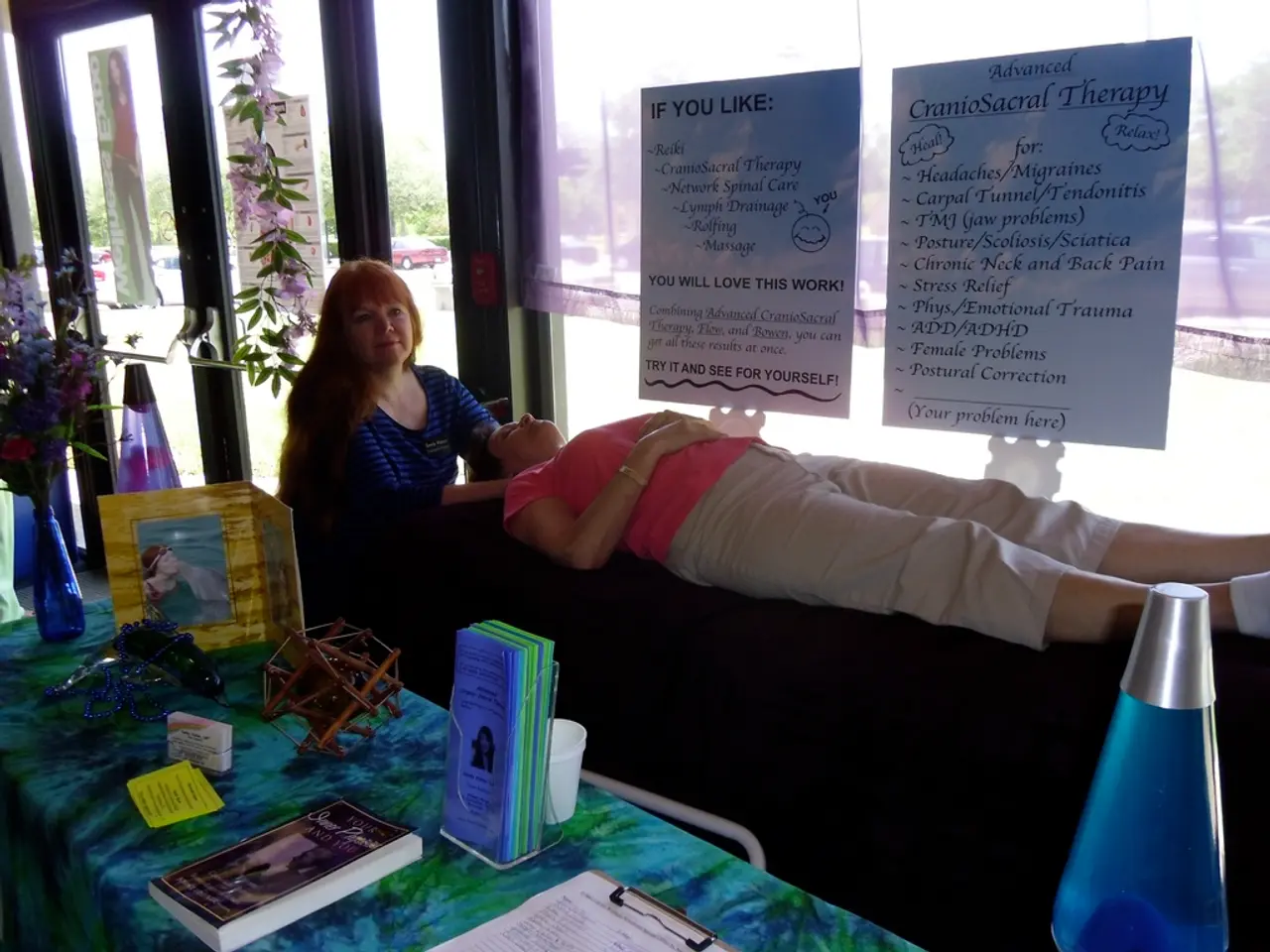Relationship with Compulsive Lover
In recent years, Compulsive Sexual Behavior Disorder (CSBD) has gained more attention in the mental health community. This condition, characterized by a pattern of recurring sexual behaviors and the inability to control them, can affect individuals and their partners.
If you suspect your partner may be struggling with CSBD, it's crucial to seek professional help from a mental health professional who specializes in supporting partners of addicts or individuals with compulsive sexual behaviors. Resources available for support include Sexual Addicts Anonymous, the American Psychiatric Association, American Psychological Association, National Alliance on Mental Illness, and Project Air. Support groups such as S-Anon and organisations like the Substance Abuse and Mental Health Services Administration (SAMHSA) can also provide valuable resources and information about addiction and mental health conditions.
Research has shown that CSBD is not an uncommon issue. A 2016 study found that 16.9% of college students surveyed met the criteria for CSBD. Furthermore, a 2019 study found that of males with obsessive-compulsive disorder (OCD) exhibited symptoms of CSBD at the time of diagnosis, and 5.6% had symptoms in their lifetime.
CSBD may include engaging in excessive amounts of casual sex, pornography viewing, and masturbation. It's important to consider getting tested regularly for sexually transmitted infections (STIs) and using contraceptives and barriers to protect against STIs if you think your partner is engaging in sex with others while maintaining a sexual relationship with you.
Treating CSBD involves understanding what may be causing it. Clinicians will work with individuals with CSBD to distinguish which sexual behaviors are causing distress or affecting social functioning, and suggest ways to decrease problematic sexual behaviors while reinforcing healthy behaviors. Treatment options may include cognitive behavioral therapy, cognitive-analytic therapy, mindfulness practices, and self-help group sessions.
It's essential to remember that taking care of yourself may mean leaving the relationship, but the partner's actions are not a reflection of you. Compulsive sexual behavior in a partner can have various physical and psychological causes, often characterized by repeated sexual activities that dominate a person's life, leading to neglect of health, responsibilities, and other interests, as well as an inability to control intense sexual impulses over a prolonged period, causing significant distress or impairment in personal, social, or occupational areas.
CSBD is classified as an impulse control disorder in the International Classification of Diseases (ICD-11), but it is not included in the Diagnostic and Statistical Manual of Mental Disorders, 5th edition (DSM-5). This means that while only a mental health professional can diagnose CSBD, some signs include extensive use of pornography and masturbation, use of paid sexual services, risky sexual behaviors, and an intense preoccupation with sex.
In some cases, setting boundaries may include asking a partner to seek help from a professional for their behaviors or asking them to abstain from engaging in casual sex with others if maintaining a sexual relationship. American Addiction Centers suggests asking oneself questions such as "Am I setting healthy boundaries for myself?" and "Am I giving myself time for my own stress management activities?"
If you or someone you know is struggling with CSBD, it's important to seek help and remember that support is available.
Read also:
- Peptide YY (PYY): Exploring its Role in Appetite Suppression, Intestinal Health, and Cognitive Links
- Toddler Health: Rotavirus Signs, Origins, and Potential Complications
- Digestive issues and heart discomfort: Root causes and associated health conditions
- House Infernos: Deadly Hazards Surpassing the Flames





